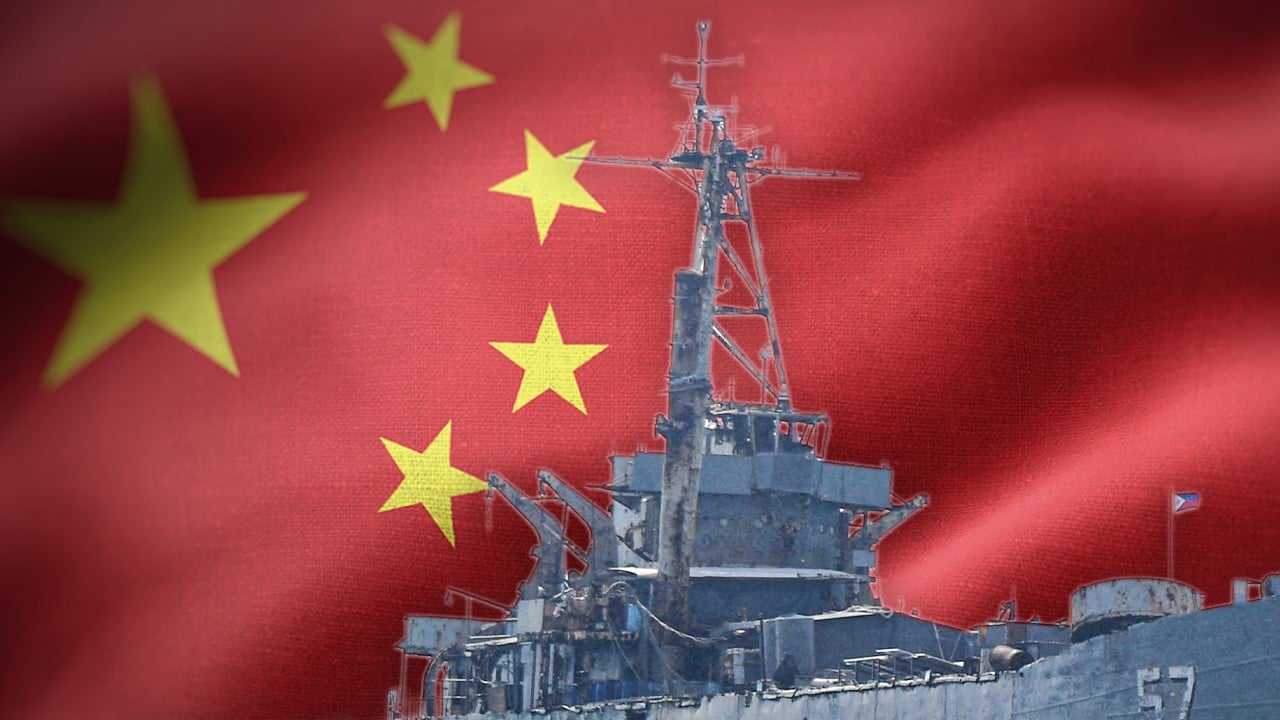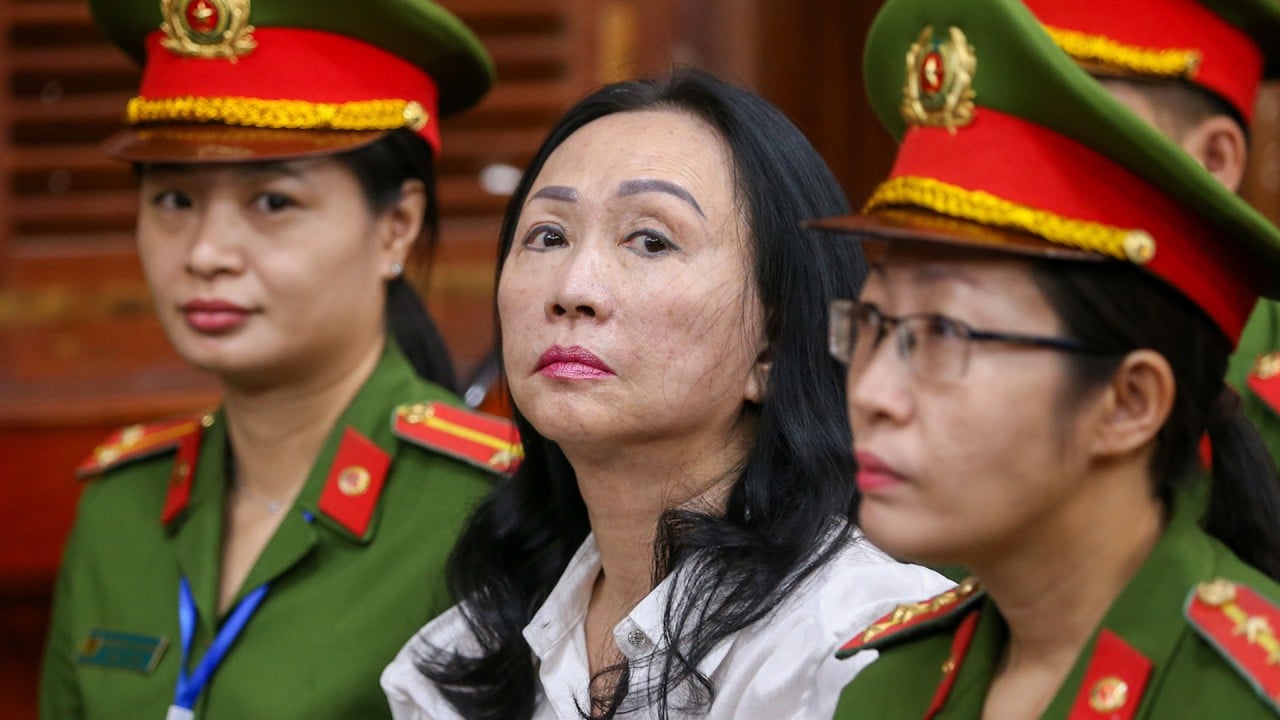China’s ties with Vietnam are a diplomatic priority, Xi Jinping tells To Lam on state visit
“I am willing to build a good working relationship and personal friendship with you, and jointly lead the construction of a community of destiny between China and Vietnam in a deeper and more practical way.”
Xi spoke highly of Trong – describing him as “a good comrade and friend” – and of Trong’s contribution to bilateral ties, despite a deepening rift in the South China Sea between Beijing and Hanoi and Vietnam’s elevation of ties with the United States.
“China has always regarded Vietnam as a priority in its neighbourhood diplomacy, supporting Vietnam in adhering to the leadership of the party, following the path of socialism in line with the country’s national conditions, and pushing forward the cause of innovation, openness and socialist modernisation,” Xi was quoted as saying.
Xi also said Beijing and Hanoi “have maintained rapid economic development and long-term social stability, highlighting the superiority of the socialist system” in the face of “changes in the world, the times and history”.
He urged Lam to focus on developing “higher political mutual trust, more solid security cooperation, deeper practical cooperation, a stronger foundation of public opinion … and better management and resolution of differences”.
Chinese and Philippine coastguard ships collided near Sabina Shoal in the Spratly Islands, with each blaming the other for the clash.
While both Hanoi and Manila are among the most vocal rival claimants in the South China Sea, Vietnam under Trong’s watch has managed to repair political ties with China, without playing up their differences on highly charged territorial issues.
Pundits said strong party-to-party relations, a personal bond between top leaders, and the shared commitment on both sides to communist ideology had helped to stabilise their ties after the diplomatic stand-off in 2014 over a Chinese deepwater oil rig in the waters.
Despite his poor health, Trong visited Beijing in October 2022, becoming the first foreign leader to meet Xi after he secured his third term at the Chinese Communist Party’s 20th national congress.
Xi repaid the trip with a state visit to Hanoi in December. During the trip, China and Vietnam elevated their ties to a “community with a shared future”, which Hanoi had resisted in the past mostly due to the maritime dispute.
During his meeting with Lam on Monday, the Chinese leader renewed Beijing’s pledges to “accelerate the promotion of railway, highway and port infrastructure” and to “actively explore” the expansion of other Chinese-funded projects under the Belt and Road Initiative.
They also signed a joint declaration and more than a dozen cooperation documents covering cross-border railways and other areas ranging from health, industry, finance, customs to party schools, news agencies and media, Chinese state news agency Xinhua said.
According to a mainland-based analyst, who spoke on condition of anonymity citing the sensitivity of the subject, Lam is Vietnam’s first leader since its founding revolutionary Ho Chi Minh to visit China as president and party chief.
But both Chinese and overseas observers said Beijing was clearly concerned about Vietnam’s warming ties with the US and the impact of its southern neighbour’s unprecedented political turmoil in the past months.
“I believe To Lam’s visit is intended to reassure China of Vietnam’s commitment to maintaining a cordial relationship, particularly in light of the recent political changes and leadership succession in Vietnam,” said Nguyen Khac Giang, an analyst at Singapore’s ISEAS-Yusof Ishak Institute.
Uncertainty has hung over Hanoi since the rise of Lam, a public security minister who oversaw a “blazing furnace” anti-corruption drive, and Trong’s death from a long unspecified illness.
Although the crackdown has been popular with the public – ensnaring 40 members of the party’s Central Committee since 2016 and removing three of Vietnam’s top five leaders since March – it has raised fears about a succession crisis and instability.
Lam, who arrived in the Chinese capital on Sunday after a brief visit to Guangzhou, also tried to reassure China that Beijing was a priority for Hanoi in its “bamboo diplomacy”, a phrase Trong coined about the country’s balancing act between Beijing and Washington.
In Guangzhou on Sunday, Lam was quoted by Xinhua as saying that “his party and country have always considered the development of relations with China as the top priority in their foreign policy”.
Although the South China Sea remains a top obstacle to bilateral ties, Giang said it was not expected to be a major focus during Lam’s visit, unless there was an emergency or a significant incident.
“From Vietnam’s perspective, the primary focus will likely be on economic cooperation, especially in areas such as investment and infrastructure development. This emphasis is evident in To Lam’s decision to visit Guangdong before heading to Beijing,” he said.
The mainland-based analyst said that given the growing political uncertainty in Hanoi ahead of a major power reshuffle in 2026, bilateral ties still faced major challenges, especially over the acrimonious maritime feud.
Hanoi protested in May over Beijing’s dispatch of a hospital ship to the Paracel Islands and followed in Manila’s footsteps by filing a claim last month with the United Nations for an extended continental shelf in the South China Sea beyond the existing 200 nautical miles.
To China’s dismay, a Vietnamese coastguard ship also took part in the first-ever joint drills in the Philippines early this month.

